Graham Hill's Triple Crown prizes set to be sold at auction
Trophies, prizes, memorabilia and racewear from Graham Hill's career, including each of his Triple Crown victories, is being auctioned next month in an "unprecedented" sale from his family collection
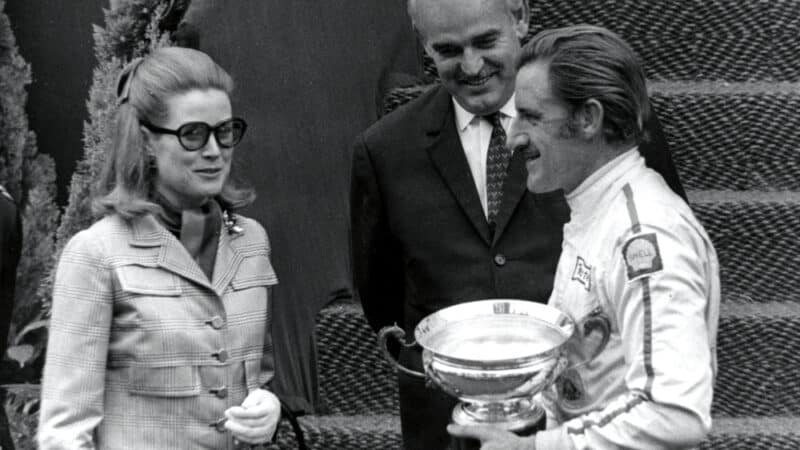
RM SOTHEBY'S
Graham Hill is still the only driver ever to achieve motor racing’s unofficial Triple Crown by winning at Monaco, Indianapolis and Le Mans. Now, his prizes from each of those victories will go under the hammer next month.
Among career trophies, helmets, overalls and other memorabilia put up for auction by his family, are his 1969 Monaco Grand Prix– and 1972 Le Mans 24 Hours-winning trophies, as well as a $12,500 cheque awarded for finishing first in the 1966 Indianapolis 500.
Hill’s 1962 world championship trophy is also available, as well as a period helmet in his trademark London Rowing Club colours.
The collection of 59 items is included in RM Sotheby’s London sale, on November 4 and is described as an “unrepeatable opportunity to acquire significant and extremely rare items with perfect provenance.”
1966 Indy 500 winner’s cheque
Estimate: £250-£400
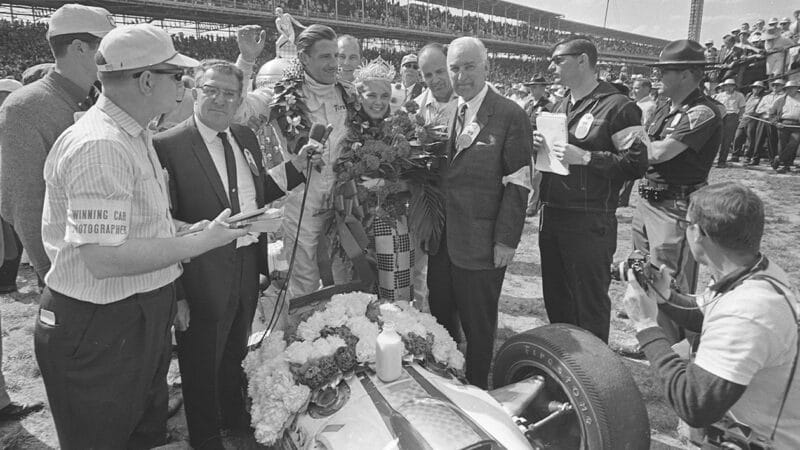
Hill wears the laurels after 1966 Indy 500 win
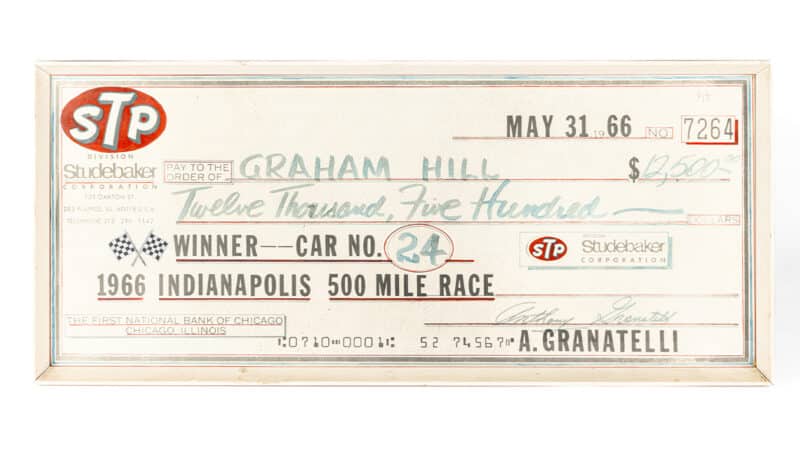
Cheque is signed by STP CEO Andy Granatelli
RM Sotheby’s
Made out on May 31 1966 for $12,500, the estimate for Hill’s Indy 500 winner’s cheque from sponsor STP is only £250 to £400. The ink may be fading, but that year’s race is the stuff of legend.
As the end of the race approached, an all-British podium was looking likely. Jim Clark‘s STP Lotus led the Mecom Racing Lola of Jackie Stewart, whose team-mate Hill was behind. But Lotus gremlins, which twice caused Clark to suddenly pirouette before resuming, had put Stewart on his tail and the Scotsman took advantage, moving into first.
Up to that point, Hill’s race had been quiet and he was almost a lap behind Stewart. But the pair, who were also F1 team-mates with BRM, had a competitive rivalry and Hill was determined not to go a lap down to the Scot.
He upped his pace and Stewart responded in kind, despite pleas from the pitwall where signs displaying ‘EZY’ urged Stewart to slow down and secure the win. It took only 20 miles to see his crew’s fears realised as his engine filled with oil from a failed pump. He pushed the car to the pits and was classified sixth.
Hill meanwhile inherited the lead and won — eventually. Clark was initially named the victor, and he headed to the winner’s circle, only to find out that there had been a timing error, and he had actually finished second. With three Monaco Grand Prix results already under his belt, Hill had ticked off another of racing’s classics and banked a $12,500 from STP — in addition to the $156,297 cheque from the organisers (not being auctioned).
1969 Monaco Grand Prix first-place trophy
Estimate: £25,000-£50,000
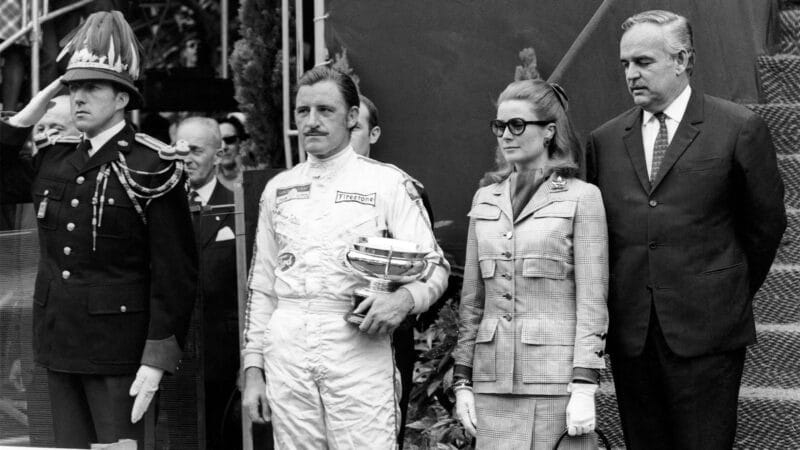
Hill with 1969 Monaco GP-winning trophy
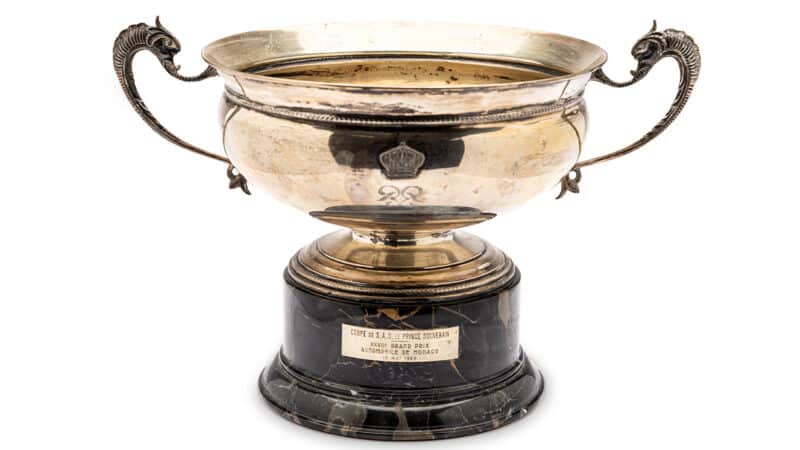
The same trophy now up for auction
According to the auctioneers, this is thought to be the first time that a Monaco Grand Prix-winning trophy has been offered at auction. It’s more significant than most too, representing the fifth and final win in the Principality for ‘Mr Monaco’.
Hill had won the previous year’s Monte Carlo race, during his second world championship-winning season and repeated the feat in 1969 with a calculated drive.
Sitting in third place after the race start, Hill put in a steady, measured drive and waited. As he hoped, practice problems for his rivals recurred: Chris Amon retired from second place with a broken differential on his Ferrari and then Stewart, who had looked to be coasting to victory, stopped due to a driveshaft failure.
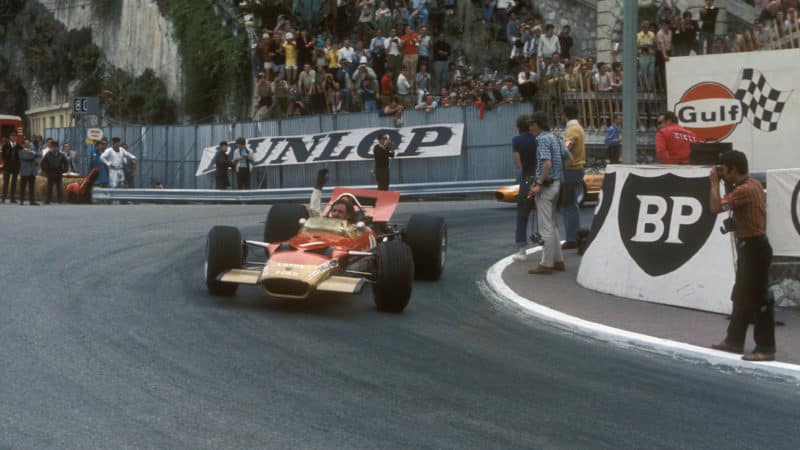
Hill took his fifth and final Monaco win in ’69
Grand Prix Photo
By the time he crossed the finish line, Hill led second-placed
In addition to the 1969 race winner’s trophy, next month’s auction also includes Hill’s 1965 Monaco Grand Prix fastest lap trophy, which was awarded during his most perfect Monaco weekend of the lot, where he secured pole position, fastest lap and a ninth career victory. The guide price for the item is set between £5000 and £8000.
1972 24 Hours of Le Mans winner’s Moët & Chandon Trophy
Estimate: £20,000-£30,000
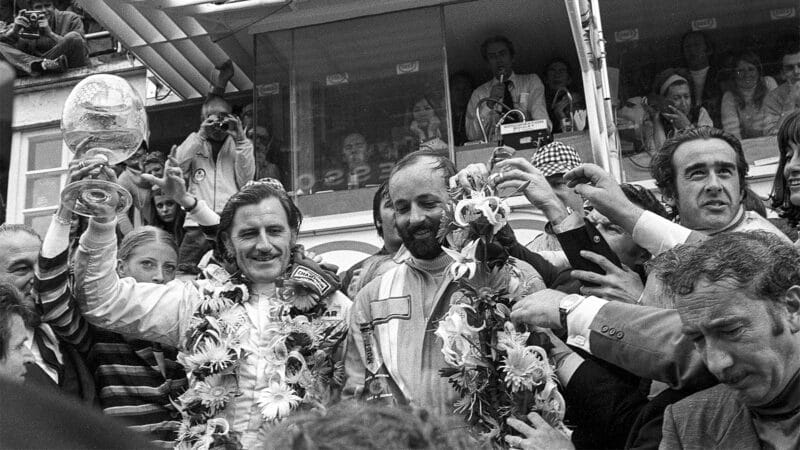
Hill celebrates Le Mans win with team-mate Pescarolo
Bernard Cahier/Getty Images
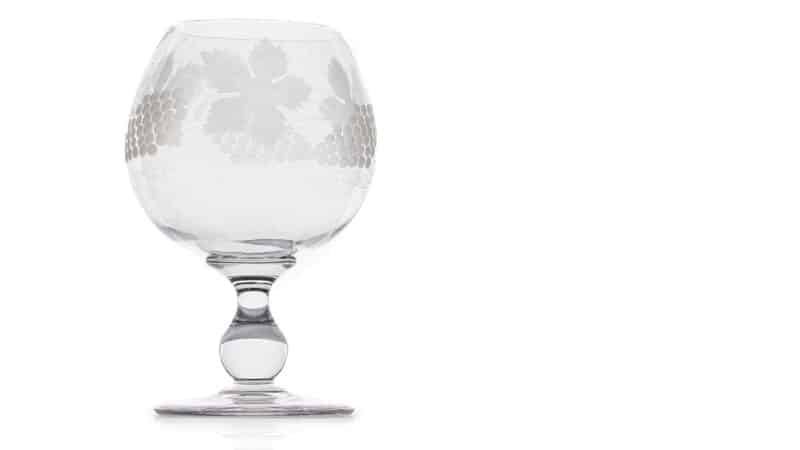
The 1972 trophy has an estimate of £20,000-£30,000
Described as “one of the finest pieces of Le Mans memorabilia ever to come to auction”, Hill’s 1972 Le Mans winner’s trophy marked the final victory of his Triple Crown.
Partnered with Henri Pescarolo for his tenth and final appearance at La Sarthe, Hill drove a Matra-Simca MS670 to victory — ten laps clear of the trailing field — after winning a battle with Francois Cevert and Howden Ganley in the sister Matra.
“At his age (43), I didn’t expect him to take any risks,” said Pescarolo. “However, I realised that this was no ordinary driver.”
Battling through torrential rain in the night truly separated the great from the good, and Hill’s performance during such a dangerous period of the race proved decisive in the race win.
Others do have a chance of replicating Hill’s history racing legacy: Indy 500 and Monaco Grand Prix winner Juan Pablo Montoya has raced at Le Mans, but never in the top category, while Fernando Alonso lacks an Indy 500 victory — which he has attempted to rectify twice in 2018 and 2020. For now, Hill stands alone.
1962 FIA Drivers’ World Championship Trophy
Estimate: £25,000-£35,000
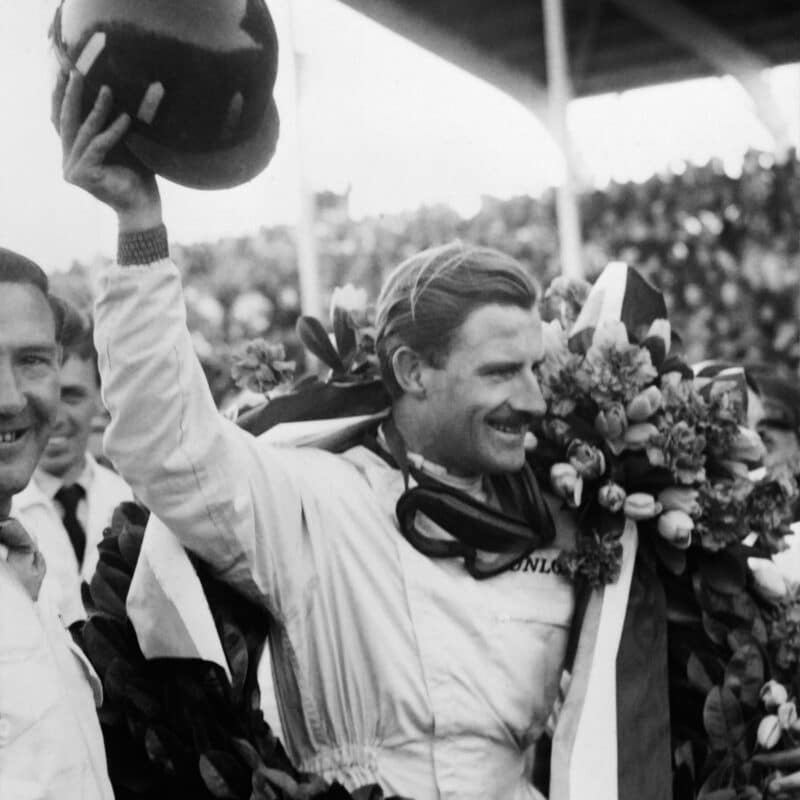
Hill celebrates winning the 1962 title in South Africa
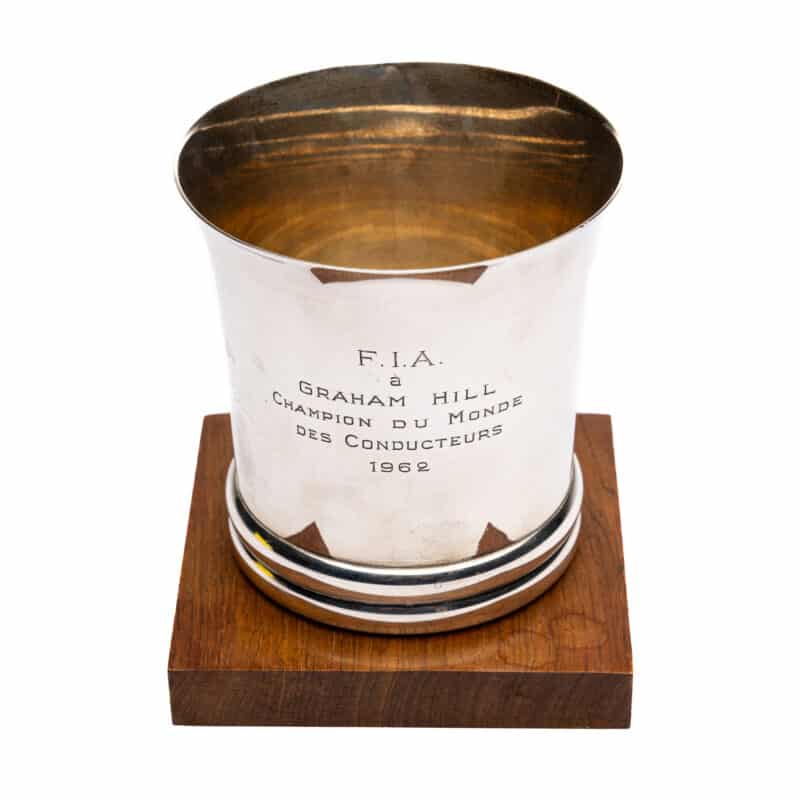
Cup is believed to be first F1 championship trophy to be sold
Nine years after passing his driving test at the age of 24, Graham Hill became Formula 1 world champion. A season-long battle with Jim Clark in the new Lotus 25 culminated in a decider at the final race of the year in South Africa.
In a familiar echo of other races that season, Clark led away but unreliability forced him to retire, leaving Hill in his BRM to take the race win and title.
He’d begun the season without a single world championship win to his name, having spent two years using his engineering prowess helping to develop BRM’s initially uncompetitive offerings. The arrival of the V8-powered P57 finally gave him a shot at the championship and he took full advantage, helped by the fragile nature of Clark’s Lotus.
A debut win at the season-opener in Zandvoort was followed by engine failure while leading at Monaco with only eight laps to go. He finished second in Belgium and at Watkins Glen while also scoring key victories in Germany (despite a fire extinguisher loose in his cockpit) and Italy.
Alongside the 1962 FIA World Championship Trophy, the winner’s cup from the season finale in South Africa is also being sold with an estimate of £15,000-£25,000.
Bell Formula 1 helmet and racing overalls
Estimate: £20,000-£30,000
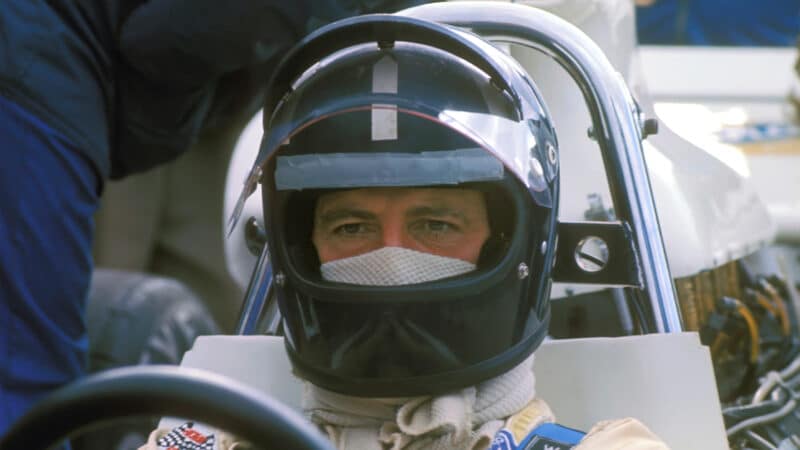
Hill was one of the first drivers to wear a full-face helmet
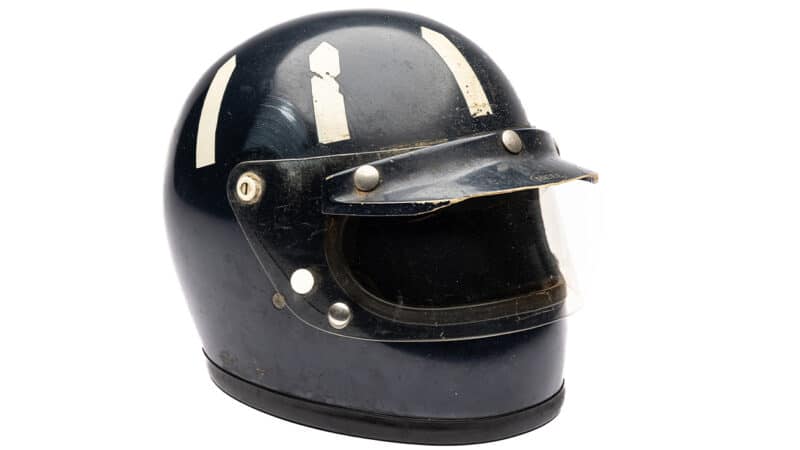
Race-worn helmet is being auctioned, as is a set of overalls
Hill competed for the London Rowing Club and adopted its eight-striped logo (representing oars) when it came to designing his helmet. The white-on-dark blue scheme was a distinctive marker throughout his career and was then adopted by son Damon who became the first son of a world champion to take the title.
The one helmet being auctioned carries a 1970 date and appears race worn. Other lots include a set of overalls which were worn by Hill in races and carry an estimate of £8000 to £12,000.
